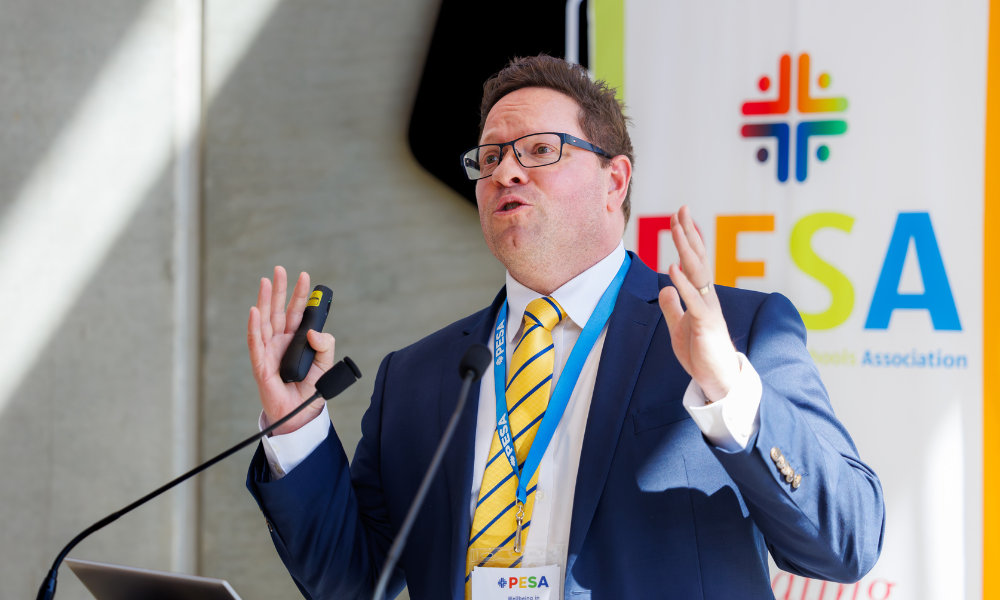'If you want a high-performing workplace and culture, psychosocial factors should be on your agenda,' says expert speaking at upcoming HRD Wellbeing Summit Australia

Addressing psychosocial hazards in the workplace shouldn't be just about mitigating legal and financial liabilities, which is a growing misconception as more legislations addressing these hazards emerge across Australia.
Tom Nehmy, Director and Principal Psychologist, Healthy Minds, underscored that psychosocial functioning in a workplace is within the domain of wellbeing, and there is a clear link between wellbeing and work performance.
"If you want a high-performing workplace and work culture, psychosocial factors of all kinds should be on your agenda anyway," Nehmy told HRD.
He made the remarks amid growing legislation across Australia that obligates employers to mitigate psychosocial hazards at work. These hazards, according to Nehmy, are common risks for harm that are predominantly non-physical in nature.
"For years, workplaces have been aware of the need to reduce and eliminate particular physical hazards, but now we are focusing - quite rightly - on those that are psychosocial in nature," Nehmy said.
Addressing psychosocial hazards
Legislations have identified psychosocial hazards as stress, fatigue, bullying, violence, aggression, harassment, and burnout, among others.
According to Nehmy, organisations who don't take reasonable steps to mitigate these risks will perform less well than those who do.
"They will find it harder to defend compensation claims that arise from those hazards and are likely to have a higher number of claims," he warned.
"So, it affects the bottom line of organisations, but also the culture in which workers are immersed, and the functional outcomes of their day-to-day work. One example of the consequences of poor psychosocial risk management is staff who are frequently burnt out or disengaged."
But addressing these psychosocial risks shouldn't be a "reactive process" either, where a response only happens once a risk is elevated.
"My passion is preventive psychology, and we teach that when prevention is done well it is a quiet achievement, because you aren't putting out a fire with all the associated drama and urgency, you're stopping the fire from occurring in the first place," he said.
'Good psychosocial leadership'
Good leaders have a "natural affinity" for considering and acting on psychosocial hazards at work, according to Nehmy.
"Good leadership is good psychological leadership. It has profound psychological implications, for example, how people feel about work and how they feel while at work; and interpersonal processes are the means by which leaders influence others," he said.
"Building psychological safety is a way leaders can foster an open culture where employees feel safe to discuss these hazards, without fear of reprisal."
HRD Wellbeing Summit Australia
Nehmy will be joining the upcoming HRD Wellbeing Summit Australia, where he is expected to discuss further about comprehensive solutions for workplaces on psychosocial hazards.
"I can't wait to speak on this because it is the single most impactful topic in the corporate world today," he told HRD. "I'm looking forward to introducing real solutions to attendees that will solve their specific pain points. I'm confident they will leave with a well-informed plan of action!"
Nehmy also teased that they will unveil at the summit the contribution of AI on psychosocial hazard management at work.
According to Nehmy, it's "incredible" how AI can get a "good read" on psychosocial hazards through predictive analysis and employee sentiment markers.
"AI is amazing," he said. "One of the AI developments we'll be presenting at the summit will blow people away in terms of its brevity and sophistication."
"We'll also explore the psychological science behind training leaders in psychosocial hazards in a way that most efficiently leads to mastery."
The HRD Wellbeing Summit Australia will take place on May 22 at The Fullerton Hotel Sydney.







